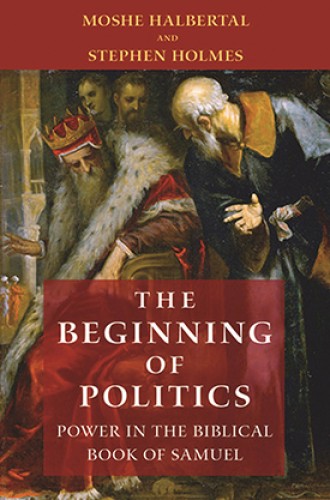Saul, David, and the morality of power
How shrewdly the drama of mixed motives, mixed loyalties, and mixed feelings unfolds.
A torrent of books have appeared recently commenting on the narratives of 1 and 2 Samuel. This corpus of fresh, suggestive literature has reflected a drift from historical (and historical-critical) concerns to an appreciation of the narrative’s artful constructiveness. Most of these books are preoccupied with the awareness that the biblical stories are richly and intentionally fraught with deep ambiguity that admits of no obvious decoding. Moshe Halbertal and Stephen Holmes contribute a thoughtful, wise, and judicious exposition that considerably advances our understanding.
Halbertal and Holmes, both of whom teach law at New York University, treat the Samuel narrative as an artistic construct that offers a shrewd insider view of the complexities of governance. They regard the author, who “must have resided at court or have once been part of the political world itself,” as an eyewitness of the narrated events.
The book’s title, The Beginning of Politics, recognizes Samuel as a new kind of literature within the Bible. Here human agents are primary, in contrast to the antecedent books in which the gods are decisive. In his classic essay on Samuel, Gerhard von Rad recognized God’s retreat from active agency in the story. Halbertal and Holmes go further, insisting that power and history unfold “naturalistically” without reference to divine agency. God is at best “like a retired boss” who no longer has the capacity to influence events.





